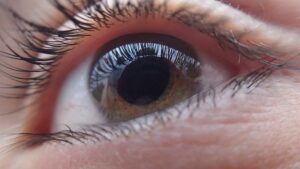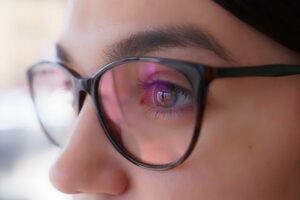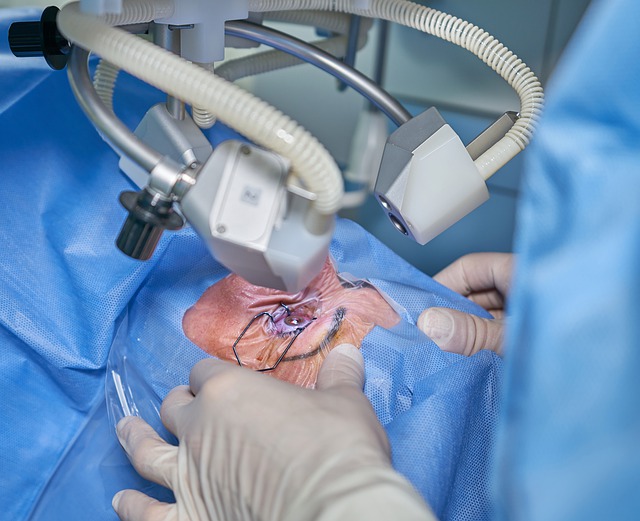Cataracts are a common eye problem that can cause blurry vision and difficulty seeing in low light. If you are experiencing these symptoms, you may be considering cataract surgery. This procedure has come a long way in recent years, and the latest option is keyhole cataract surgery. In this post, we will discuss what keyhole cataract surgery is, how it is performed, and the benefits of choosing this method over traditional cataract surgery.
What Is Keyhole Cataract Surgery?

A cataract is the clouding of the eye’s natural lens. This usually happens as we age, but it can also be caused by trauma, certain medical conditions, or prolonged exposure to ultraviolet (UV) light. Keyhole cataract surgery is a minimally invasive procedure that removes the cataract-affected lens and replaces it with an artificial intraocular lens (IOL).
Keyhole cataract surgery is a minimally invasive procedure that is used to remove cataracts. The surgeon makes a small incision in the side of the eye and inserts a tiny camera into the eye. The camera guides the surgeon as they remove the cataract. Keyhole cataract surgery is less invasive than traditional cataract surgery, and it has a shorter recovery time.
How Is Keyhole Cataract Surgery Performed?
Keyhole cataract surgery is performed under local anesthesia. This means that you will be awake during the procedure, but you will not feel any pain. The surgeon will make a small incision in the side of your eye and insert a thin instrument called an endoscope. The endoscope is used to guide the surgeon as they remove the cataract-affected lens. Once the lens has been removed, the artificial intraocular lens is inserted through the same incision.
What Are The Benefits Of Keyhole Cataract Surgery?
There are many benefits of keyhole cataract surgery
- It is a minimally invasive procedure that has a shorter recovery time than traditional cataract surgery.
- Keyhole cataract surgery is less likely to cause complications such as infection and bleeding.
- This method of surgery preserves more of the eye’s natural tissue.
- It has a high success rate and is considered to be very safe.
- Better vision and reduced reliance on glasses
What Are the Risks of Cataract Surgery?

Cataract surgery is generally a safe and effective procedure. However, as with any surgery, there are some risks involved. These include infection, bleeding, retinal detachment, and increased intraocular pressure. While most people do not experience any complications after surgery, it is important to be aware of the risks before you undergo the procedure.
If you are considering cataract surgery, be sure to talk to your doctor about the risks and benefits of the procedure.
Things To Know Before Cataract Surgery
If you are planning to have cataract surgery, there are a few things you should know before the procedure:
- You will need to have a complete eye examination. This will help your doctor determine if you are a good candidate for surgery.
- You will need to stop taking certain medications prior to surgery. These include blood thinners, aspirin, and non-steroidal anti-inflammatory drugs. Be sure to talk to your doctor about any medications you are taking prior to surgery.
- You will need to arrange for someone to drive you home after the procedure. Cataract surgery is usually an outpatient procedure, which means you will be able to go home the same day. However, you will not be able to drive yourself home after the surgery.
- The surgery is performed on an outpatient basis, which means you won’t have to stay in the hospital overnight. The surgery usually takes less than an hour.
- Before your surgery, you will be given local anesthetic eye drops to ensure that you don’t feel pain while the cataract surgery is being carried out. Sedation may also be administered by the anesthetist to ensure that you are relaxed throughout the procedure
- The entire procedure takes about 30 minutes, and you will be able to go home the same day
- You need to wear sunglasses for one week while going out to protect your eyes from the sun and bright lights
- You will not be able to swim or use a hot tub for two weeks following the surgery
- For the next two weeks, your doctor will prescribe you eye drops to prevent infection and inflammation
- You will be able to see better almost immediately after surgery, but it can take up to six weeks for your vision to completely recover
- You will be able to continue light exercises within a few days, and strenuous exercises after two weeks
Lastly, you should plan to take it easy for the first few days after surgery. This means avoiding strenuous activity and getting plenty of rest. Be sure to follow your doctor’s instructions after surgery to ensure a successful recovery.
Recovery From Keyhole Cataract Surgery
Recovery after surgery is usually quick. Most people can return to their normal activities within a day or two. There is no need for stitches, and the incisions are so small that they usually heal on their own.
Some people may experience some mild discomfort, bruising, or swelling after surgery. These symptoms should resolve within a few days. Your doctor will likely prescribe eyedrops to help with healing and to reduce the risk of infection. During this time, you may also experience some side effects such as glare, double vision, and difficulty seeing at night. These side effects are usually temporary and will improve as your vision continues to heal.
If you have any concerns or problems after surgery, be sure to contact your doctor. Keyhole cataract surgery is usually successful in restoring clear vision. While most people experience great success with this type of surgery, a small percentage of people may develop complications. These can include infection, bleeding, retinal detachment, and increased intraocular pressure.
Do I Still Need To Wear Glasses After Cataract Surgery?

Most people will not need to wear glasses after surgery, as the implants used during the procedure will correct for your pre-existing vision defects like nearsightedness, farsightedness, and astigmatism. However, you may still need to wear glasses for reading or other close-up work. Your doctor will be able to tell you if you will need glasses after surgery.
Conclusion
Keyhole cataract surgery is a minimally invasive procedure that can correct your vision and help you to see clearly once again. The surgery is usually successful, and most people experience few or no complications. Recovery is usually quick, and you will be able to return to your normal activities within a day. Most people who have cataract surgery experience a significant improvement in their vision. More than 95% of people who have the surgery can see better afterward.
If you have any questions or concerns, be sure to reach out to us. At EyeMantra we have a team of experienced eye surgeons, who will be happy to answer your any questions on cataract surgery, cataract surgery cost, cataract lens cost for different cataract surgery types- Phacoemulsification, MICS & Femto Laser Cataract . Call us at +91-9711116605 or email at [email protected] for inquiries.


